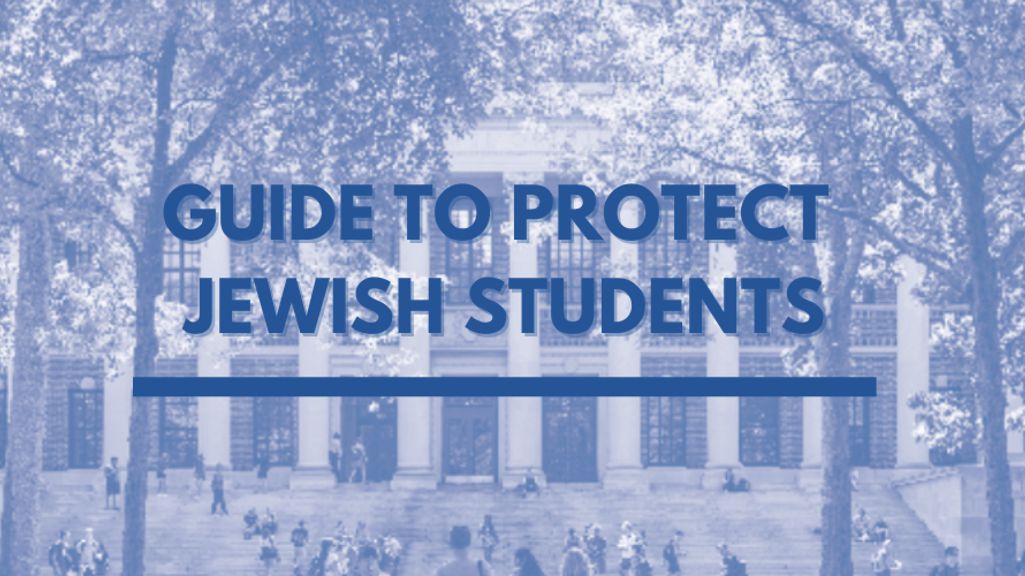A report on campus antisemitism and recommendations for combating bigotry
The number of antisemitic incidents in the U.S. has risen sharply over the last three years. The Anti-Defamation League’s Audit of Anti-Semitic Incidents jumped from 1,267 incidents nationwide in 2016 to 1,986 in 2017, a 57 percent increase. The number climbed another 12 percent from 2018 to 2019. And the public is noticing the change. According to a 2019 survey by the American Jewish Committee (AJC), more than 80 percent of American Jews feel antisemitism has increased in the last 5 years.
Many of these incidents occur at universities, which are paradoxically champions of diversity and hotbeds of hate. 20 percent of respondents to the AJC survey have either personally experienced or know someone who has experienced antisemitism on college campuses. That’s 20 percent too many.
Although campuses closed when coronavirus erupted, and nearly half of colleges began their fall semesters entirely or primarily online, antisemitism has continued both online and offline. The AMCHA Initiative, a nonprofit organization dedicated to documenting antisemitic activity on U.S. campuses, has logged over 130
incidents since March 15, 2020, at both public and private universities across the country. While the form these incidents take has shifted—with many recent cases occurring online, either in conventional ways or through the recently-popularized Zoombombing—the hatred fueling them remains the same. Given this toxic climate, it is imperative that alumni take steps to protect Jewish and Zionist students.
The Guide To Protect Jewish Students report will list 50 of the most flagrant exhibitions of antisemitism that transpired in universities across the country over the past three years, from August 1, 2017 to July 31, 2020. Some of the most alarming incidents include swastikas spray-painted in a Jewish professor’s office, the resignation of a student government vice president due to harassment for her Zionist identity, and a performer at a school-sponsored conference inviting the audience to join him in his “antisemitism song.”
The report will also include recommendations on how alumni can counter antisemitism in the categories listed on the following pages.
ACF_GuideAlums for Campus Fairness Mission Statement
Alums for Campus Fairness (ACF) harnesses the unique power of alumni to counter antisemitism, including demonization of Israel and other forms of bigotry at universities. In the face of unprecedented attacks on Jewish and Zionist students, staff and faculty, ACF’s network acts to address acts of antisemitism on campus and ensure that universities remain pillars of truth and academic freedom. ACF members proactively engage with the administration at their alma maters to prevent discrimination, promote open dialogue, and foster respectful debate.
ACF accomplishes its goals through educational, advocacy and outreach activities. Alumni are kept informed through webinars and local chapter engagement and are empowered to spread their message through media and digital campaigns, and to speak directly with university leaders. With many chapters across the United States and thousands of alumni, ACF sends a clear message that there is no place for hate on campus.






